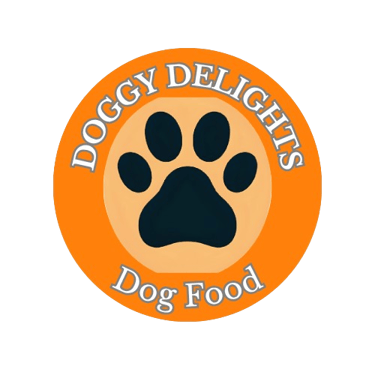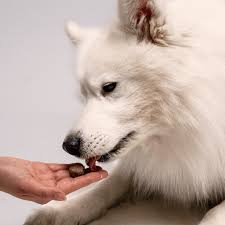





Get the Best Deals
Free Dog Food Alerts
How to Choose the Correct Dog Food
Calculate Your Dog's Food Type
Related Articles:
1.What are the key ingredients to look for in dog food for allergies?
2.How can I tell if my dog has a food allergy?
3.Can food allergies in dogs be cured, or are they a lifelong condition?
4.How does the fat-to-protein ratio affect dogs with allergies?
5.What are the benefits of using novel proteins in dog food for allergies?

Home > Leading dog food > Leading Dog Foods for Dogs With Allergies


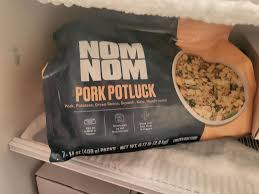

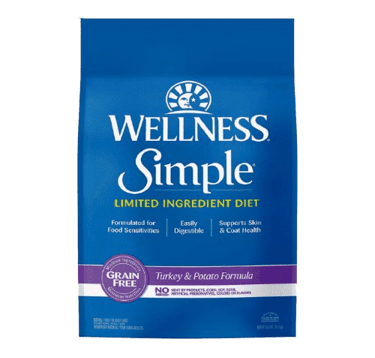

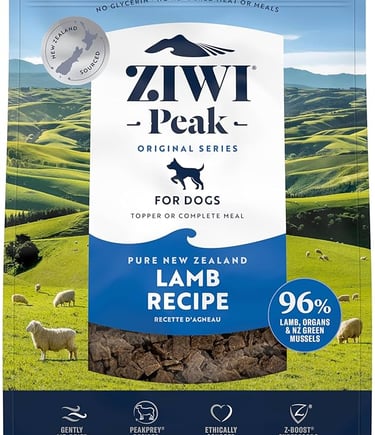

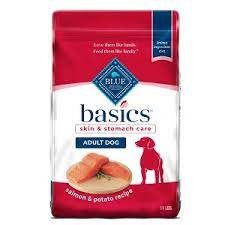




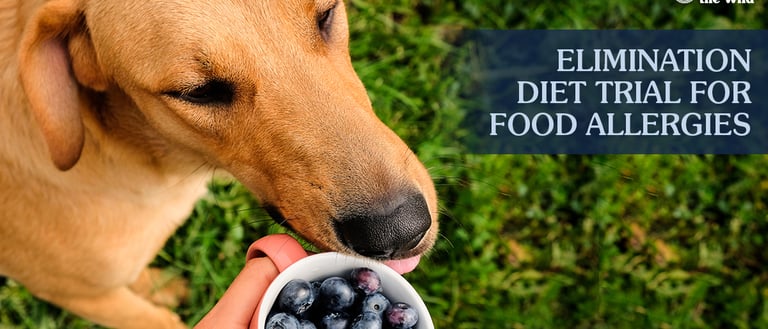



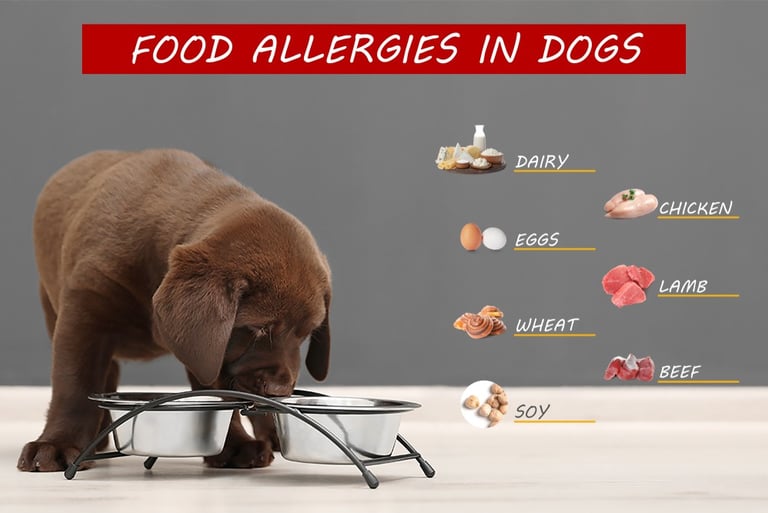





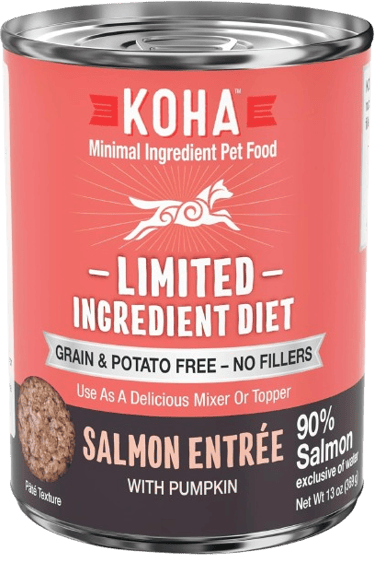

1.What are the key ingredients to look for in dog food for allergies?
When selecting dog food for allergies, there are several key ingredients to look for that can help manage your dog's sensitivities:
Novel Proteins:
Novel proteins are essential for dogs with allergies. These are protein sources that your dog hasn't been exposed to before, reducing the likelihood of an allergic reaction.
Some examples include:
Venison
Rabbit
Duck
Kangaroo
Bison
Limited Ingredients:
Limited ingredient diets (LIDs) are crucial for dogs with allergies. These diets typically include:
A single protein source
Limited carbohydrates
No common allergens like dairy, wheat, soy, or artificial additives.
Easily Digestible Components:
Look for ingredients that support digestive health, such as:
Fiber-rich options like pumpkin and brown rice
Ingredients that improve stool quality
Omega-3 Fatty Acids:
Ingredients rich in omega-3 fatty acids can help reduce inflammation and promote skin health. Sources may include:
Fish (like salmon)
Marine microalgae oil
Grain-Free Options:
For dogs sensitive to grains, look for grain-free formulations that exclude common allergens like:
Wheat
Corn
Soy2
Hypoallergenic Carbohydrates:
Some carbohydrate sources are less likely to trigger allergies:
Sweet potatoes
Peas
Lentils
Remember, every dog is unique, and what works for one may not work for another. It's always best to consult with your veterinarian before making significant changes to your dog's diet, especially if they have known allergies or sensitivities.
2.How can I tell if my dog has a food allergy?
Determining whether your dog has a food allergy can be challenging, as the symptoms often overlap with other conditions. However, there are specific signs and diagnostic steps that can help you identify if your furry friend is suffering from a food allergy.
Symptoms of Food Allergies in Dogs:
Food allergies in dogs typically manifest as skin or gastrointestinal (GI) issues. Here are the most common symptoms to watch for:
Skin Symptoms:
Persistent itching, especially on the paws, face, abdomen, or anal area
Red, irritated skin
Recurrent ear infections (often the only symptom in some dogs)
Hair loss or hot spots caused by excessive licking or scratching
Dry, flaky skin or oily coat
Gastrointestinal Symptoms:
Vomiting
Diarrhea
Excessive gas
Frequent bowel movements
Other Symptoms:
Chronic yeast or bacterial infections
Weight loss or lack of energy
Behavioral changes like hyperactivity or irritability
These symptoms may appear within hours or days after consuming an allergen and can persist until the offending ingredient is removed from their diet.
Common Triggers of Food Allergies:
The most frequent cause of food allergies in dogs is proteins. Common culprits include:
Beef
Chicken
Dairy products
Eggs
Soy
Less commonly, grains like wheat and corn may also trigger reactions. Novel proteins like venison or duck are often used in hypoallergenic diets to avoid these allergens.
How to Diagnose Food Allergies:
Since there are no reliable blood or skin tests for food allergies in dogs, veterinarians use an elimination diet trial to diagnose them:
Elimination Diet: Feed your dog a hypoallergenic diet for 8–12 weeks. This diet should contain novel proteins and carbohydrates your dog hasn’t eaten before. No treats, flavored medications, or table scraps are allowed during this period.
Food Challenge: After the trial, reintroduce their previous diet to see if symptoms return. If they do, a food allergy is confirmed.
Long-Term Management: Once the allergen is identified, avoid it permanently by selecting a suitable diet.
When to See a Veterinarian:
If your dog shows persistent symptoms of itching or GI upset despite treatment for other conditions (e.g., fleas or environmental allergies), consult your veterinarian. They can help rule out other causes and guide you through the elimination diet process.
Managing Food Allergies:
Once diagnosed, managing food allergies involves feeding your dog a specialized diet that avoids the allergen. Options include:
Veterinary-prescribed hydrolyzed protein diets (e.g., Hill's Prescription Diet z/d®)
Novel protein diets (e.g., kangaroo or rabbit-based foods)
Home-cooked meals formulated by a veterinary nutritionist.
By closely monitoring your dog's diet and symptoms, you can significantly improve their quality of life!
3.Can food allergies in dogs be cured, or are they a lifelong condition?
Food allergies in dogs are generally considered a lifelong condition that cannot be cured. However, they can be effectively managed through proper diet and avoidance of allergens. Here's what you need to know:
No Cure, But Manageable:
Currently, there is no evidence that dogs can outgrow their food allergies. Once a food substance has been identified as an allergen, the condition is considered lifelong. The only way to treat food allergies is through avoidance of the offending ingredients.
Long-term Management:
While food allergies cannot be cured, they can be well-managed long-term with appropriate diet therapy
This involves:
Identifying the specific allergens through an elimination diet trial
Avoiding the identified allergenic ingredients
Feeding a suitable hypoallergenic or limited-ingredient diet
Ongoing Vigilance:
Even with successful management, it's important to note that:
Dogs can develop new food allergies over time
Strict adherence to the prescribed diet is crucial
Regular check-ups with a veterinarian are necessary to monitor the condition
Prognosis:
If a food allergy is the sole cause of a dog's skin or ear problems, identifying and eliminating the problematic ingredients can significantly increase the pet's quality of life. However, it's important to remember that some patients may need to remain on a therapeutic or home-cooked diet for life.
In conclusion, while food allergies in dogs are not curable, they can be effectively controlled through careful diet management and lifelong avoidance of allergenic ingredients. This approach can lead to a significant improvement in the dog's symptoms and overall quality of life.
4.How does the fat-to-protein ratio affect dogs with allergies?
The fat-to-protein ratio (FPR) in dog food plays a significant role in managing allergies and overall health. Here's how this balance impacts dogs with allergies:
1. Importance of Protein in Allergies
Protein is often the main trigger for food allergies in dogs. A balanced FPR ensures that dogs get enough protein for their nutritional needs without overloading their system, which could exacerbate allergic reactions. Excessive protein can sometimes worsen existing allergies or cause digestive issues, especially in sensitive dogs.
Recommendation: Opt for diets with moderate protein levels (25–30% on a dry matter basis for adult dogs) to avoid triggering immune responses while still supporting skin and coat health.
2. Role of Fat in Allergies:
Dietary fats are essential for energy and cellular functions but must be carefully managed for allergic dogs. High-fat diets can lead to digestive upset, including vomiting and diarrhea, which are common symptoms of food intolerances. Additionally, fats from grain-fed animals may contain pro-inflammatory omega-6 fatty acids that aggravate skin conditions and allergy-like symptoms.
Omega Fatty Acids Balance: The ideal omega-6 to omega-3 ratio is approximately 4:1. Omega-3 fatty acids (found in fish oil) are anti-inflammatory and can help reduce itching and inflammation caused by allergies.
3. How FPR Affects Nutrient Absorption:
A diet with an excessively high fat-to-protein ratio may cause dogs to feel full before meeting their protein and nutrient requirements, potentially leading to deficiencies over time. Conversely, diets with too little fat might fail to provide sufficient energy or support for skin health.
Balanced FPR: For optimal health, aim for a dry matter basis of 25–30% protein and 10–15% fat for adult dogs. This ensures adequate energy while minimizing the risk of allergic reactions.
4. Purity of Fats:
For dogs with severe allergies, the purity of fats is critical. Pure fats like fish oil are generally safe because they lack proteins that could trigger allergic responses. However, fats contaminated with protein traces during processing may cause issues in highly allergic dogs.
5. Managing Allergies Through FPR:
To manage allergies effectively:
Choose foods with moderate FPR to avoid excessive fat or protein intake.
Prioritize high-quality fats rich in omega-3s (e.g., fish oil or krill oil) to reduce inflammation.
Avoid foods with high omega-6 content or low-quality fat sources, as these can worsen skin conditions and allergy symptoms.
Conclusion:
The fat-to-protein ratio significantly affects dogs with allergies by influencing nutrient absorption, inflammation levels, and overall health. A balanced diet with moderate protein and fat levels, combined with anti-inflammatory omega-3 fatty acids, can alleviate symptoms and improve your dog's quality of life. Always consult your veterinarian to determine the best dietary plan tailored to your dog's specific needs.
5.What are the benefits of using novel proteins in dog food for allergies?
Using novel proteins in dog food offers several benefits for managing food allergies. Novel proteins are unique protein sources that your dog has not been exposed to before, such as rabbit, kangaroo, duck, venison, or even crocodile. These proteins help reduce allergic reactions and improve overall health. Here's why they are beneficial:
1. Reduced Risk of Allergic Reactions:
Dogs often develop allergies to common proteins like chicken, beef, or dairy due to prolonged exposure. Novel proteins minimize this risk because they are new to the dog's diet and less likely to trigger an immune response. This makes them a hypoallergenic option for dogs with food sensitivities or allergies.
2. Useful for Elimination Diets:
Novel proteins are essential in elimination diets, a diagnostic tool used by veterinarians to identify food allergies. By feeding a single novel protein and carbohydrate source, pet owners can pinpoint the specific allergen causing symptoms. This process enables accurate identification and long-term management of the allergy.
3. Improved Skin and Coat Health:
Many novel protein sources, such as kangaroo and fish, are rich in omega-3 fatty acids. These nutrients have anti-inflammatory properties that support skin health, reduce itching, and promote a shiny coat—key benefits for dogs suffering from allergy-related skin issues14.
4. Dietary Diversity:
Each novel protein offers a unique amino acid profile, contributing to balanced nutrition. This diversity not only supports overall health but also prevents "food boredom" in picky eaters or dogs that lose interest in their meals.
5. High Nutritional Value:
Novel proteins tend to be leaner and less processed than conventional options like chicken or beef. They often contain higher nutritional value, making them a healthier choice for dogs with sensitive systems.
6. Environmentally Friendly Options:
Some novel proteins, such as kangaroo or insect-based foods, have a lower environmental footprint compared to traditional livestock farming. This makes them a sustainable choice for eco-conscious pet owners.
Examples of Novel Protein Sources:
Kangaroo: Lean, clean meat with high omega-3 content1.
Rabbit: Easily digestible and low-fat.
Duck: Rich in iron and amino acids.
Venison: A lean red meat alternative.
Crocodile: Rarely found in commercial pet foods, making it ideal for elimination diets.
Conclusion:
Novel proteins are an excellent solution for dogs with food allergies or sensitivities. They reduce the risk of allergic reactions, provide essential nutrients, and support diagnostic efforts through elimination diets. By incorporating novel proteins into your dog's diet under veterinary guidance, you can effectively manage allergies while ensuring optimal health and well-being.
